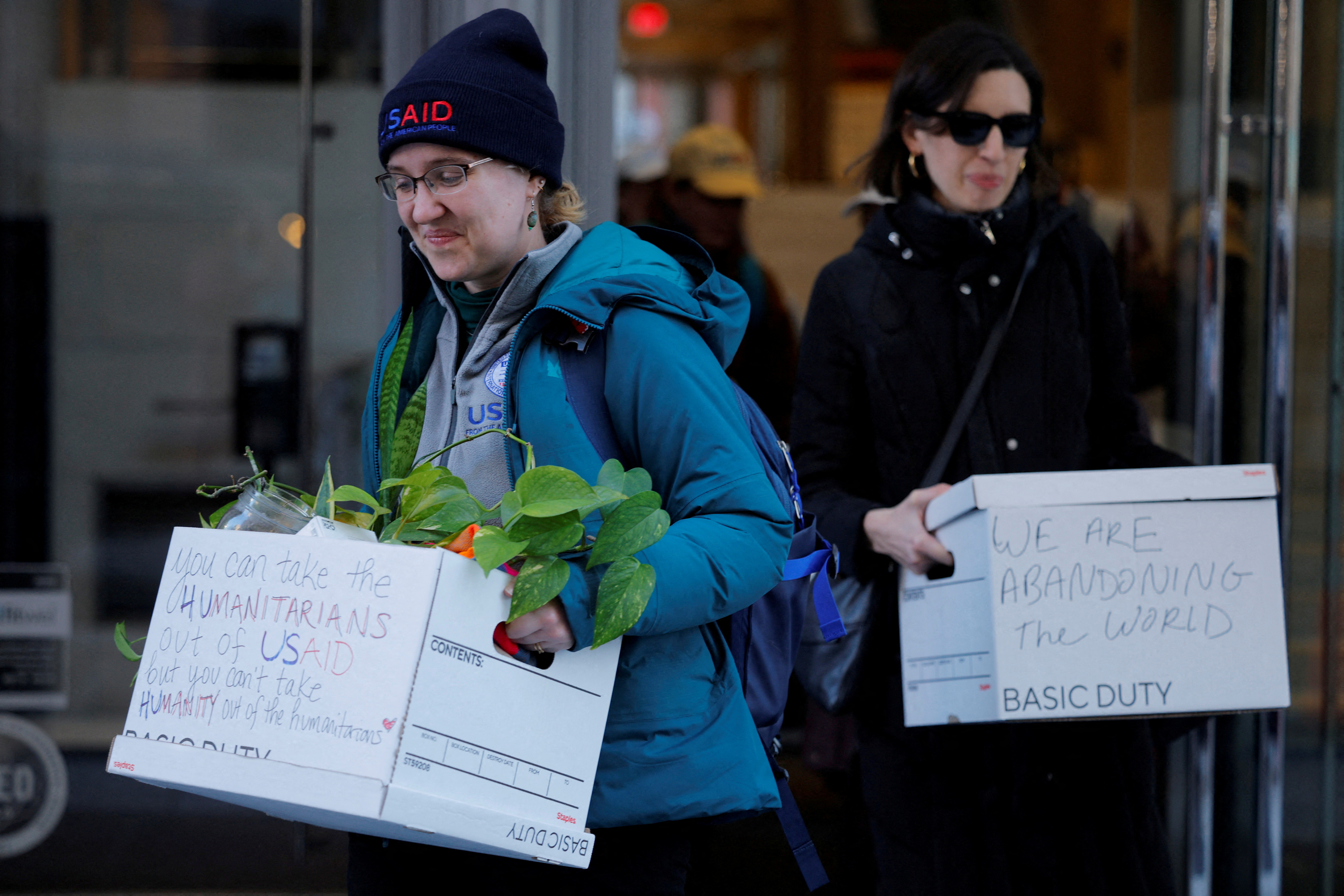The US Agency for International Development will on Tuesday officially stop implementing foreign aid, Secretary of State Marco Rubio said, adding that America’s assistance in the future will be targeted and limited.
In a statement marking the transfer of USAID to the State Department as part of President Donald Trump‘s unprecedented push to shrink the federal government, Rubio said the US was abandoning what he called a charity-based model and would focus on empowering countries to grow sustainably.
“We will favour those nations that have demonstrated both the ability and willingness to help themselves and will target our resources to areas where they can have a multiplier effect and catalyse durable private sector, including American companies, and global investment,” the top US diplomat wrote.
This new model, he wrote, would prioritise trade over aid and investment over assistance, adding it would put Washington in a stronger place to counter Beijing.
The Trump administration has frozen and then cut back billions of dollars of foreign aid since taking office, saying it wants to ensure US taxpayer money goes only to programs that are aligned with Trump’s “America First” policies.
The cutbacks have effectively shut down USAID, leading to the firing of thousands of its employees and contractors. That jeopardised the delivery of life-saving food and medical aid and has thrown global humanitarian relief operations into chaos.
According to research published in The Lancet medical journal, deep funding cuts to USAID and its dismantling could result in more than 14 million additional deaths by 2030.
Human rights experts and advocates have warned against the cuts. USAID funding has had a crucial role in improving global health, primarily directed toward low- and middle-income countries, particularly African nations, according to the study.
Reuters reported on Tuesday that the administration cancelled a major contract to supply emergency kits for rape survivors in eastern Democratic Republic of the Congo as violence surged there this year, leaving thousands without access to life-saving medication, the United Nations and aid groups said.
INVESTMENT AND TRADE DEALS
USAID was established in 1961 by Democratic President John F Kennedy at the height of the Cold War with the aim of better coordinating foreign assistance, already a key platform of US foreign policy in countering Soviet influence.
Washington has been the world’s largest humanitarian aid donor, amounting to at least 38 per cent of all contributions recorded by the United Nations. It disbursed $61 billion in foreign assistance last year, just over half of that via USAID, according to government data.
Among the programs affected by the cuts is the President’s Emergency Plan for AIDS Relief (PEPFAR), the world’s leading HIV/AIDS initiative.
Sub-Saharan Africa remains the epicentre of the AIDS pandemic. Trump’s cuts have restricted the availability of drugs that millions of Africans have taken to prevent infection – particularly vulnerable communities such as gay men and sex workers – as aid groups and public health systems in Africa strove to roll back the disease.
Trump has said the US pays disproportionately for foreign aid and he wants other countries to shoulder more of the burden.
A senior State Department official briefing reporters on the condition of anonymity described the USAID model as “failed engagement” that did not reduce the dependency of foreign countries on the United States, and he said other nations will need to step up.
“We want to see more investment from our partners, co-investment,” the official said. “We want to see trade deals, compacts, agreements to work together on stuff.”
The shuttering of USAID drew a rare rebuke from former presidents George Bush and Barack Obama who joined a closed video conference event with the USAID community, the Associated Press reported on Monday.
“Gutting USAID is a travesty and it’s a tragedy. Because it’s some of the most important work happening anywhere in the world,” Obama was quoted as saying.






Click here to change your cookie preferences